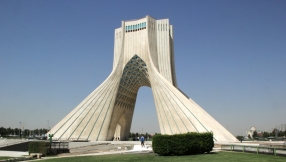Bishop of Southwark Launches Just War Book
The Rt Rev Tom Butler, also Vice Chair of the Church of England's Mission and Public Affairs Division chaired the launch, which involved a number of contributors to the book.
The book addresses the need to re-evaluate the "just-war" tradition in light of what it calls a revolution in military affairs, marked by the shift in focus from defence to security in the post-Cold War climate.
With greater involvement from multinational institutions, such as the United Nations, the European Union and NATO, the book's author Sir Richard Dannatt, Chief of the General Staff, argues that warfare is no longer marked by swords on battlefields, but rather that "they are being used to try to contribute to prosperity and stability and not merely to threaten or destroy".
In the foreword to the book he says that "the physical means of war have become ever-deadlier, but the moral component of war - people - has remained as the central element.
"What people think they can achieve by war, how people conduct themselves in war and how people set about restoring peace - it is our response to these questions that ultimately defines our humanity."
The Price of Peace is a collection of essays co-sponsored by the Church of England and the Catholic Bishops Conference of England and Wales. It takes an interdisciplinary approach to examine how the "just-war" tradition works in both theory and practice, bringing together a distinguished group of political, philosophical and theological academics and a number of practitioners including soldiers, church people, civil servants and lawyers from both sides of the Atlantic.
The Price of Peace provides a major and timely statement on the moral status of war as it tackles subjects such as rogue regimes, terrorism, radical Islam and humanitarian intervention.
The book has already won praise from Joel H. Rosenthal, President, Carnegie Council for Ethics in International Affairs, who described it as "essential reading for anyone who seeks to understand the duties and restraints that separate the humane from the barbarous - particularly in the extreme aspect of the human condition we are now experiencing as war in the 21st century".
General Sir Rupert Smith, Former Deputy Supreme Commander, Allied Powers Europe, meanwhile, said: "This excellent book should be read by the many who comment on the rights and wrongs of today's numerous conflicts. In particular it should be read by all involved with initiating or directing military operations and by those commanding forces engaged on operations."











